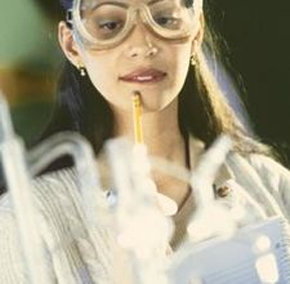Biochemistry Degree
Biochemistry is a subject that focuses on using basic principles of science to find out the components of living things on earth. A basic knowledge in biochemistry is important for students to do well in biotechnology. Biotechnology has helped with successful inventions such as the artificial lymph nodes, artificial kidneys that are able to perform dialysis and the spit test machine that helps doctors diagnose oral cancer.
Course Outline for a Biochemistry Degree
Students are exposed to several practical and theoretical classes. The practical classes are frequently taken in the labs where the students have the necessary tools for performing different kinds of tests. Courses normally taken by biochemistry students include:
- Biochemistry: This is the major course for the students. The students learn about amino acids, polymers, proteins, enzymes, lipids, nucleic acids and metabolic pathways. Other topics contained in biochemistry include molecular biology, neurochemistry, bioinorganic, immunochemistry and biophysical chemistry.
- Biology: Some schools require their students to take more courses in biology than chemistry. When this is the case, students are exposed to biology topics such as cell biology, genetics, microbiology, molecular cell biology and genomics. The students are frequently taken to the labs for practical classes.
- Calculus: A bachelor's degree student in biochemistry also needs to take math courses. Although some schools minimize the mathematics topics to be studied, all biochemistry students are expected to know how to deal with Calculus I and II. Apart from biochemistry, mathematics is a very important subject for all the other chemistry courses.
- General Chemistry: During the general chemistry periods, the students cover subjects such as molecular structure, bonding, chemical reactions, activities of elements on the periodic table and the factors that influence their arrangement. They also study acids, bases and several fundamental theories. General chemistry is an important course for biochemistry students because it helps them gain better understanding when it is time for them to be exposed to more advanced topics in chemistry.
- Physiology: Physiology is a course that helps the students understand the anatomy of the human body. It contains topics such as cell structure, the skeletal system, the nervous system, the muscular system, the cardiovascular system and the endocrine system.
Courses offered by Graduate Students in Biochemistry
The main thing done by graduate students during their master's program is research. Most times, the graduate students are seen looking for more opportunities in the research field by seeking admission into doctorate degree programs. Some of the courses are tailored to meet the specific needs of the course while other courses are more general in nature. Some of these general courses include:
- Molecular genetics
- Advanced biochemistry
- Protein engineering
- Molecular cell biology
- Biological photochemistry and
- Metabolic engineering
Job Opportunities for Individuals with a Degree in Biochemistry
The United States Bureau of Labor Statistics has predicted that job opportunities for biochemists will increase by at least 37% before the end of 2018. People with PhD qualification are usually employed in research and development agencies where they even have better opportunities to advance in their career. In May 2010, the Bureau of Labor Statistics calculated the average salary of a biochemist to be $86,580. In 2011, Georgetown University reported that biochemistry is among the top ten highest paid jobs in the workforce.

